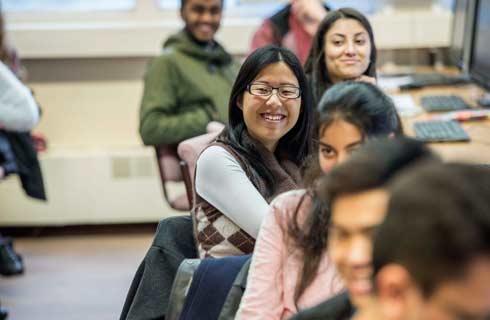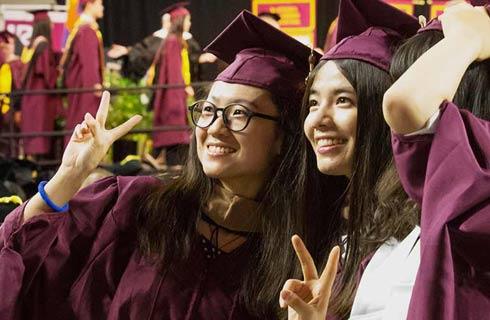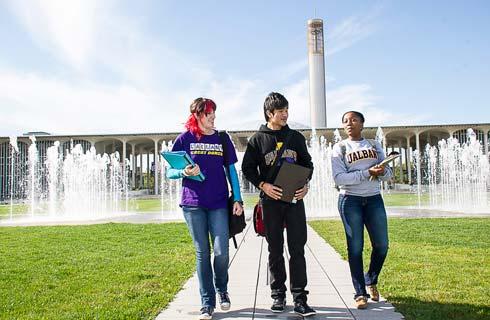History PhD

学历文凭
Ph.D.

专业院系
人类社会研究

开学时间

课程时长

课程学费

国际学生入学条件
The entry requirements for the PhD are: a recognised Masters degree or similar qualification which is regarded by the University of Brighton as being equivalent and relevant, or substantial appropriate research or professional experience at postgraduate level which resulted in published work, written reports or other appropriate evidence of accomplishment. An application made by someone with this experience will be considered on its merits and will normally require independent academic references or, unless a School exercises their right to specify more stringent entry requirements, we may consider a first or upper second honours degree or other qualification which is regarded by the University of Brighton as being equivalent and relevant. The normal entry requirements for the EdD (Professional Doctorate in Education) are: a qualification, normally at Masters level in a relevant subject or appropriate research experience. An application made by someone with research experience but with no Masters level qualification will be considered on its merits and will normally require independent academic references, at least four years of appropriate professional experiences. Entry requirements for the MPhil (available as a standalone degree in some schools) are: a first or second class honours degree, or other qualification which is regarded by the University of Brighton as being equivalent, and which is normally relevant to the programme of study, appropriate experience in a professional or research environment. An application based on professional experience will be considered on its own merits and will normally require independent academic references.
IELTS scores:research degrees in Arts and Humanities and Health Professions require 7.0 overall, 7 for writing, and none below 6.5.
IELTS scores:research degrees in Arts and Humanities and Health Professions require 7.0 overall, 7 for writing, and none below 6.5.
IDP—雅思考试联合主办方

雅思考试总分
7.0
了解更多
- 雅思总分:7
- 托福网考总分:0
- 托福笔试总分:0
- 其他语言考试:NA
CRICOS代码:
申请截止日期:请 与IDP联系 以获取详细信息。
课程简介
The University of Brighton has a thriving research culture for History PhD students, built around its highly-reputed research Centre of Memory, Narrative and Histories. Our primary strength as an academic community is in modern history, including global perspectives on the twentieth-century. Our historians use a wide range of interdisciplinary methodologies that draw on social, political and cultural history and investigate the complex interconnections between present and past, evoked by concepts of memory. Research expertise for History PhD study at the university covers documentary and oral histories, literary and cultural analysis, political, moral and applied philosophy and contemporary critical theory, as well as exciting interdisciplinary combinations, and we welcome approaches for supervision in any of these areas. We have an excellent record in achieving funding for PhD students in history and related studies. Together with colleagues from closely related Centres of Research and Enterprise Excellence (COREs), we offer supervision for projects that cross disciplines in the arts, humanities and social sciences and our department thrives on its interdisciplinary interests and the close research culture that stems from it. Your supervisory team and academic network can draw on expertise in, for example, cultural studies, social anthropology, cultural geography, art and design history, art practices, media and visual studies, performance studies, critical theory, sociology, psycho-social studies, critical heritage studies, narrative theory, archive and museum studies and digital humanities. Our graduates have gone on to work in, among other fields, academia and the heritage and museum sectors. We welcome approaches to discuss suitable projects and can provide advice on application, proposals and any suitable funding.
相关申请

预科

奖学金

实习机会

在校学习

跨境学习

校园授课-线上开始

在线/远程学习
学校排名
世界排名
601
数据源:泰晤士高等教育世界大学排名
关于布莱顿大学

生动有趣、自由奔放、思想前卫--布莱顿位于英格兰南海岸,距离伦敦(英国首都)不到一个小时路程,只需30分钟即可到达伦敦盖特威克国际机场。布莱顿大学开设有本科和研究生阶段的250多门课程。该校是一个亲切友好、兼容并包的多元化社区,有来自150多个国家的约1.7万名学生。布莱顿大学注重培养为就业做好准备的毕业生,开设有广泛的课程,所有课程都为学生讲授理论知识,并让学生通过实践获得实际经验。当学生毕业时,他们将满怀自信,为到世界各地任何地方开启自己的职业生涯做好充分准备。布莱顿大学的学历资格受到全球认可,其课程已通过50多个鉴定和颁证机构的认证。该校还拥有一个由遍布140多个国家的15万名校友组成的庞大而有影响力的校园网,学生毕业后将成为其中的一员。布莱顿位居全球最佳求学城市100强之列(QS,2025年),是一个会为学生带来归属感的地方。学生可享受那里的夜生活、世界闻名的沙滩和乡村美景,乘火车很快即可到达伦敦及伦敦盖特威克国际机场。
本校相关课程
3D设计与工艺文学学士(荣誉)

学历文凭
Bachelor Degree with Honours
下一个开始日期
课程费用总额
MA Community Psychology

学历文凭
Masters Degree (Taught)
下一个开始日期
课程费用总额
应用心理学与犯罪学学士(荣誉)学位

学历文凭
Bachelor Degree with Honours
下一个开始日期
课程费用总额
应用心理学和社会学学士(荣誉)学位

学历文凭
Bachelor Degree with Honours
下一个开始日期
课程费用总额
应用心理学理学士(荣誉)学位

学历文凭
Bachelor Degree with Honours
下一个开始日期
课程费用总额
Social Research Methods MSc (PGDip)

学历文凭
Masters Degree (Taught)
下一个开始日期
课程费用总额
其他相关课程
国家土著研究中心哲学博士

澳大利亚国立大学
泰晤士高等教育世界大学排名:

学历文凭
Ph.D.
下一个开始日期
课程费用总额
芬纳环境与社会学院哲学硕士

澳大利亚国立大学
泰晤士高等教育世界大学排名:

学历文凭
Masters Degree (Research)
下一个开始日期
课程费用总额
社会科学学士(荣誉学位)

纽卡斯尔大学
泰晤士高等教育世界大学排名:

学历文凭
Bachelor Degree with Honours
下一个开始日期
课程费用总额
哲学博士(人文,艺术和社会科学)

斯威本科技大学
泰晤士高等教育世界大学排名:282

学历文凭
Ph.D.
下一个开始日期
课程费用总额
国际发展研究生文凭

乐卓博大学
泰晤士高等教育世界大学排名:267

学历文凭
Graduate Diploma
下一个开始日期
课程费用总额
土著哲学博士

南十字星大学
泰晤士高等教育世界大学排名:456

学历文凭
Ph.D.
下一个开始日期
课程费用总额




